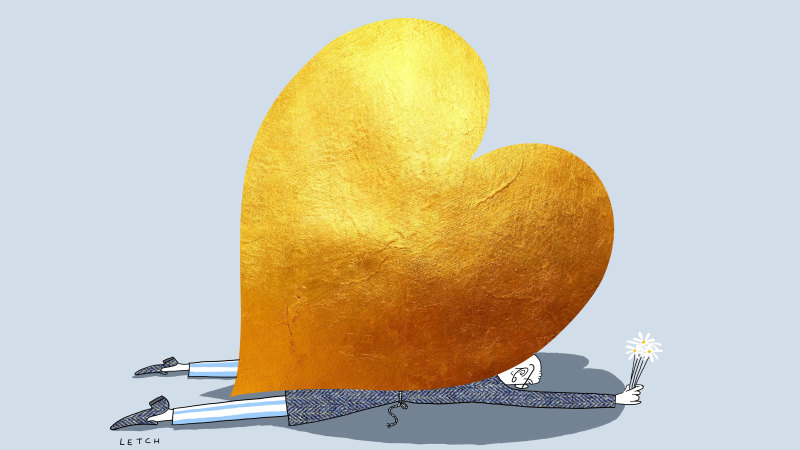
Will paying for the grandkids’ school fees affect our pension?
October 17, 2023Save articles for later
Add articles to your saved list and come back to them any time.
My wife and I are age pensioners each receiving $644 per fortnight. She received a bequest recently and would like to use part of that bequest to pay some school fees for grandchildren. Is it permissible to pay for school fees without affecting the age pension or would the payment of school fees be treated as gifts and be caught up in the gift giving restrictions?
Money paid in this way will be treated as a gift and so will be regarded as deprived asset by Centrelink. Bear in mind you could make gifts of $10,000 a year with a total of $30,000 over five years without any effect on your pension.
Giving a gift – like paying for your grandkid’s school fees – can affect your pension if the amount is high enough.Credit: Simon Letch
This is a lesson to anybody who is preparing a will to think about possible bequests to people such as grandchildren at the time of making the will. The deceased could have left enough money as a bequest for the school fees and there would be no effect on your combined pension.
My wife and I are both 69 and work part-time. We own our home and have no debts. I have a defined benefit pension from my previous employment, which is more than sufficient for our annual living expenses and my wife has a modest superannuation account in accumulation mode. We have $100,000 in shares, paying $5000 a year in dividends, and $450,000 in a savings account paying 4 per cent interest, which continues to grow. We intend to work for a few more years and want to minimise the tax we are paying on the interest.
I am wondering if a better strategy would be for my wife to make a non-concessional contribution to superannuation using the bring forward provisions, and to then open a pension account where she transfers the money into pension mode. She would keep her current accumulation account as well to continue to receive superannuation contributions from her employer. Each year she could withdraw the minimum required from the pension account. I understand that there is no tax on the pension account earnings. Have I missed something here, or can we earn as good a return tax-free?
What you propose makes perfect sense, but also think about whether your wife could make a tax-deductible concessional contribution to superannuation for part of the money she intends to contribute. Whether this is appropriate will depend on her tax bracket so take advice before you do it.
My husband and I have an SMSF in pension phase and are both trustees. We have given Enduring Powers of Attorney (EPA) to our two daughters. Can they use this EPA in matters relating to our SMSF? We understand that if one of us is no longer fit to be a trustee a new trustee must be appointed – what would be the situation with the EPA if we happened to be overseas and one of us becomes temporarily incapacitated?
The EPA would be effective, no matter where the attorneys happened to be when it was needed. If one was only temporarily incapacitated, that should not require their super fund to find a new trustee.
Dividends from shares are usually paid in March and September. When do the dividends from shares in superannuation go into a pension account? I have tried to contact my fund which is a large industry super fund, but I get an automated reply telling me to log on and read my statement. It doesn’t say when distributions are distributed.
A superannuation fund does not credit specific earnings to specific members accounts. They have a large amount of income coming in from earnings and contributions and a large amount of money going out by way of pension payments and withdrawals.
Generally, any earnings on your account just come out of the pool of net earnings, often, by adjustment of the unit price.
Noel Whittaker is the author of Retirement Made Simple and other books on personal finance. Email: [email protected]
- Advice given in this article is general in nature and is not intended to influence readers’ decisions about investing or financial products. They should always seek their own professional advice that takes into account their own personal circumstances before making any financial decisions.
For expert tips on how to save, invest and make the most of your money, delivered to your inbox every Sunday, sign up for our Real Money newsletter here.
Most Viewed in Money
From our partners
Source: Read Full Article



